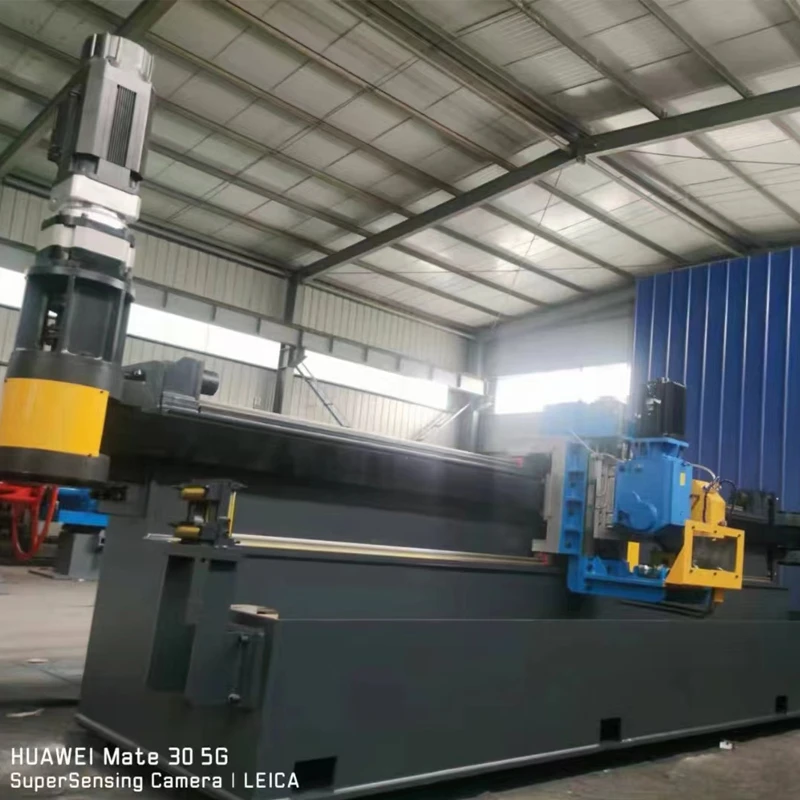Innovative Machinery for Efficient Plastic Pipe Production and Manufacturing Processes
The Evolution and Impact of Plastic Pipe Manufacturing Machines
Plastic pipes have become a critical component in various industries, including construction, water management, and telecommunications. The manufacturing of these pipes relies heavily on advanced machinery designed to produce high-quality plastic pipes efficiently and cost-effectively. This article explores the evolution of plastic pipe manufacturing machines, their significance, and the future trends that could shape this industry.
Historical Overview
The journey of plastic pipes began in the early 20th century with the advent of synthetic polymers. Initially, these materials were used in a limited capacity, primarily due to the lack of manufacturing technology. However, as the need for durable, lightweight, and corrosion-resistant pipes grew, innovations in manufacturing processes led to a surge in the production of plastic pipes.
In the 1950s and 1960s, significant breakthroughs in plastic pipe manufacturing occurred, particularly with the introduction of Polyvinyl Chloride (PVC) and High-Density Polyethylene (HDPE). The machines designed for manufacturing these pipes evolved from basic extrusion techniques to more sophisticated systems capable of producing pipes of varying diameters and specifications.
Manufacturing Processes
Today, plastic pipe manufacturing machines use advanced extrusion technology, where plastic granules are melted and shaped into continuous lengths of pipe. The process involves several steps
1. Material Preparation Plastic pellets are fed into a hopper, where they are transported to a heated barrel. Here, they are melted and mixed to achieve a homogenous composition.
2. Extrusion The molten plastic is forced through a die to shape it into the desired form. After exiting the die, the pipe maintains its shape as it cools.
3. Cooling The newly formed pipe is passed through a cooling bath, ensuring that it solidifies correctly and maintains dimensional stability.
4. Cutting and Finishing Once cooled, the pipe is cut to specific lengths and undergoes quality checks to ensure it meets industry standards.
5. Packaging Finally, the pipes are packaged for shipment to various markets.
plastic pipe manufacturing machine

Importance of Plastic Pipe Manufacturing Machines
Plastic pipe manufacturing machines play a vital role in ensuring the reliability and performance of plastic pipes. The precision of these machines allows for consistent production quality, which is essential for applications requiring safety and durability, such as in water supply systems and gas pipelines.
Moreover, the ability of modern machines to produce pipes of varying sizes and materials means that manufacturers can cater to a diverse range of customer needs. This adaptability is particularly important as industries increasingly seek customized solutions.
Environmental Considerations
As environmental awareness grows, the plastic pipe manufacturing industry is feeling the pressure to adopt more sustainable practices. Manufacturers are exploring methods to recycle plastic waste and incorporate biodegradable polymers into their products. Innovations in manufacturing machines aim to reduce energy consumption and minimize emissions during production, reflecting a broader commitment to sustainability.
Future Trends
Looking ahead, several trends are likely to influence the evolution of plastic pipe manufacturing machines
- Automation and Smart Technology The integration of automation and artificial intelligence in manufacturing processes could enhance operational efficiency, reduce labor costs, and improve product quality. Smart machines equipped with sensors can monitor production in real-time, allowing for immediate adjustments to maintain quality standards.
- Sustainable Materials The shift towards eco-friendly materials will necessitate the development of machines capable of processing alternative feedstocks, including recycled plastics and biopolymers.
- Globalization of Manufacturing As markets become more interconnected, manufacturers will need machines that can produce a uniform product regardless of location. This trend will drive innovation in machine design to maintain quality while minimizing transportation costs.
Conclusion
Plastic pipe manufacturing machines have undergone significant evolution, transforming the industry and enabling the production of high-quality, durable products. As we move forward, the focus on automation, sustainability, and innovation will shape the future of plastic pipe manufacturing, ensuring that it meets the challenges of both industry demands and environmental concerns.
-
High Frequency Straight Seam Welded Pipe Production Line-BzZhou Xinghua Machinery Equipment Manufacturing Co., LTD.|Precision Welding, High EfficiencyNewsJul.30,2025
-
High Frequency Straight Seam Welded Pipe Production Line|BzZhou Xinghua|Precision Welding&EfficiencyNewsJul.30,2025
-
High Frequency Straight Seam Welded Pipe Production Line - BzZhou Xinghua|Precision Engineering&EfficiencyNewsJul.30,2025
-
High-Frequency Straight Seam Welded Pipe Production Line-BzZhou Xinghua Machinery Equipment Manufacturing Co., LTD.NewsJul.30,2025
-
High-Frequency Straight Seam Welded Pipe Production Line-BzZhou Xinghua Machinery Equipment Manufacturing Co., LTD.|Precision Manufacturing, High EfficiencyNewsJul.30,2025
-
High Frequency Straight Seam Welded Pipe Production Line-BzZhou Xinghua Machinery Equipment Manufacturing Co., LTD.|Precision Steel Pipe Manufacturing&Industrial EfficiencyNewsJul.29,2025


